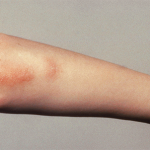The majority of patients with MAS can be successfully treated with a combination of steroids and cyclosporine. For the subgroup of patients diagnosed in the later stages of the syndrome, treatment becomes more problematic. The HLH protocol, with includes steroids, cyclosporine, and etoposide, can be dangerous in children who already have renal or hepatic impairment. It is still unclear whether biologics might be helpful, but beyond case reports of TNF and IL-1 inhibiting agents, there is no clear guidance yet. The key, said Dr. Grom, is to start diagnosing MAS better, at earlier stages. If that occurs, “the overall outcome of this condition will improve.”
Gretchen Henkel is a medical journalist based in California.
ad goes here:advert-1
ADVERTISEMENT
SCROLL TO CONTINUE
References
- Risdall RJ, McKenna RW, Nesbit ME, et al. Virus-associated hemophagocytic syndrome: A benign histiocytic proliferation distinct from malignant histiocytosis. Cancer. 1979; 44: 993-1002.
- Hadchouel M, Prieur AM, Griscelli C. Acute hemorrhage, hepatic, and neurologic manifestations in juvenile rheumatoid arthritis: Possible relationship to drugs or infection. J Pediatr. 1985;106:561-566.
- Sawhney S, Won P, Murray KJ. Macrophage activation syndrome: A potentially fatal complication of rheumatic disorders. Arch Dis Child. 2001;85:421-426.
- Blessing J, Prada A, Siegel DM, et al. The diagnostic significance of soluble CD163 and soluble interleukin-2 receptor alpha-chain in macrophage activation syndrome and untreated new-onset systemic juvenile idiopathic arthritis. Arthritis Rheum. 2007;56:965-971.
- Behrens EM, Beukelman T, Paessler M, Cron RQ. Occult macrophage activation syndrome in patients with systemic juvenile idiopathic arthritis. J Rheumatol. 2007;34:1133-1138.
